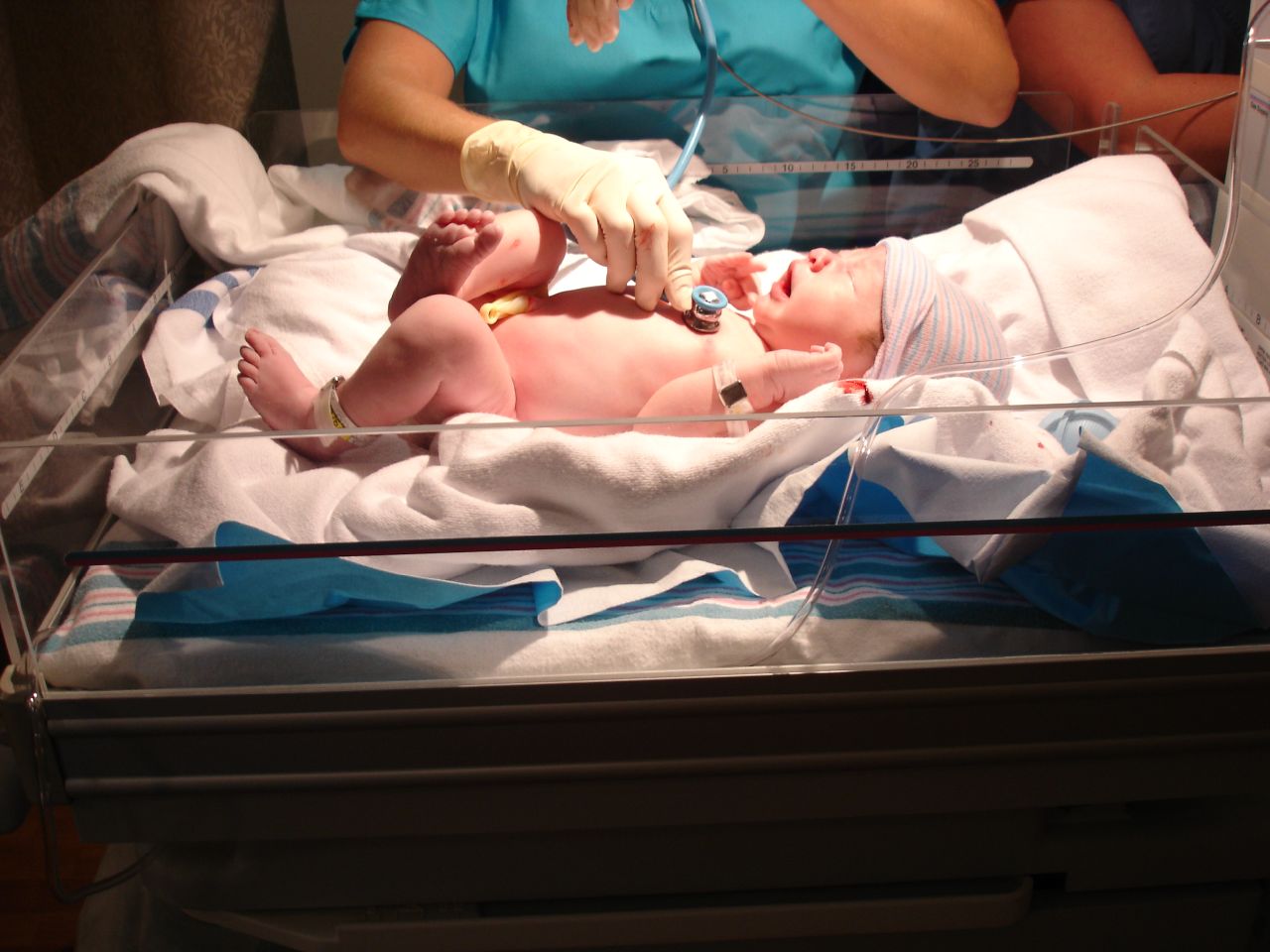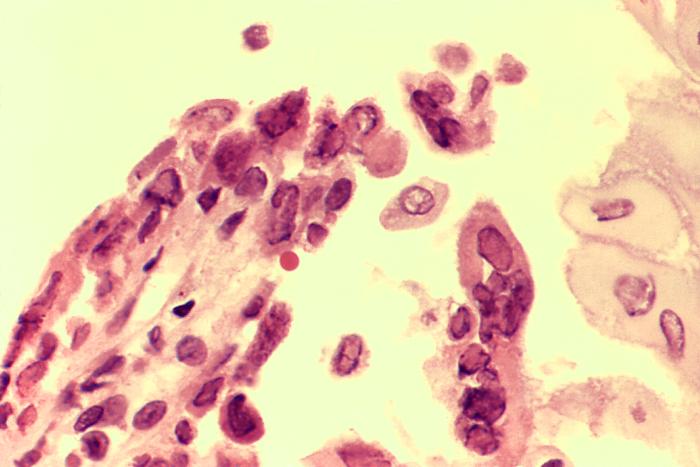Playlist
Show Playlist
Hide Playlist
Congenital Herpes Simplex Virus (HSV)
-
Slides TORCH Pediatrics.pdf
-
Download Lecture Overview
00:01 Let’s switch now to congenital herpes simplex virus or HSV. 00:07 So HSV is when an intrauterine infection presents in the first week of life with severe disseminated disease. 00:16 This is congenital HSV. 00:18 This is different from exposure during birth. 00:22 We don’t see this very often. 00:24 Usually, infants who get HSV don’t get it transplacentally. 00:28 Mostly, they get it during the birthing process and then they have a delay in those symptoms. 00:33 But congenital HSV can be very bad when it’s from an intrauterine infection. 00:38 These infants have bad, severe, disseminated disease in general. 00:43 However, they can also get it during birth. 00:46 In the first week of life, they may typically present with skin/eye/mouth disease. 00:51 This carries an excellent prognosis and if treated, will usually not progress to other disease. 00:57 Between two and four weeks of life, they may present with a simple meningitis, which is not simple because it’s very devastating if not treated and even if it is, can result in deafness and cognitive delay. 01:11 Or they may have disseminated disease a little bit later, that’s usually two to four weeks. 01:16 And again, these infants are generally very sick and have involvement of the liver, the CNS, and multiple systems. 01:25 So the presentation of congenital disease of congenital HSV depends on which organs are involved. 01:33 For skin/eye/mouth disease, they simply present with a focal or a disseminated skin rash, which is typically described as a group of vesicles on an erythematous base. 01:44 Any small vesicle in an infant must be considered to be HSV until proven otherwise. 01:50 Or they can present with disseminated diseases such as meningitis, a mild or severe hepatitis, other things like that. 02:00 The meningitis is the one we really worry about. 02:04 For disseminated disease, these patients may have a severe encephalitis. 02:09 This encephalitis often involves the temporal lobes like you can see in this patient. 02:13 So if you see temporal lobe involvement in an infant, with seizing or brain damage or fever, that’s going to be HSV until proven otherwise. 02:23 They may also have chorioretinitis, those skin lesions, they may have a mild or severe hepatitis. 02:29 We will often get LFTs simply to confirm the concern of disseminated disease. 02:34 They may go frankly coagulopathic or have disseminated intravascular coagulation. 02:40 And they may have a pneumonitis, a sort of pneumonia caused by a virus that can be reasonably severe. 02:49 For HSV testing in infants, we generally test very broadly to maximize our chance of figuring out what it is. 02:56 What’s controversial is whether we should test a simple, well-appearing, febrile infant. 03:01 Most centers do not do this, some centers do. 03:04 But anyway, what are the tests? We have the blood PCR, which is the best test for disseminated disease. 03:11 We have an HSV-CSF-PCR, which is your best test for meningitis. 03:18 And we also will culture the eyes, the mouth, the rectum, and we’ll send those for culture. 03:25 The culture is very affective and it grows reasonably quickly. 03:28 You should know the results in a day or two. 03:31 Also, we usually call ophthalmology to come see these infants to check and do a comprehensive eye exam to make sure there isn’t any eye involvement. 03:41 So that’s my summary of the TORCH infections in kids. 03:45 Thanks for your time.
About the Lecture
The lecture Congenital Herpes Simplex Virus (HSV) by Brian Alverson, MD is from the course Neonatology (Newborn Medicine).
Included Quiz Questions
Which of the following tests is best for disseminated HSV in an infant?
- Blood HSV PCR
- Blood HSV culture
- CSF HSV PCR
- Eye/Mouth/Rectal swab for HSV culture
- CSF HSV culture
Customer reviews
5,0 of 5 stars
| 5 Stars |
|
1 |
| 4 Stars |
|
0 |
| 3 Stars |
|
0 |
| 2 Stars |
|
0 |
| 1 Star |
|
0 |
Excellent lecture as usual: easy to understand, easy to remember. Thanks!





